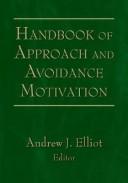| Listing 1 - 3 of 3 |
Sort by
|
Book
ISBN: 0429472420 1782411895 9781782411895 9781781813218 1781813213 9781782200529 1782200525 0429897197 0429911424 Year: 2014 Publisher: London Karnac Books
Abstract | Keywords | Export | Availability | Bookmark
 Loading...
Loading...Choose an application
- Reference Manager
- EndNote
- RefWorks (Direct export to RefWorks)
This book foregrounds the life struggles of an individual, Brenda, in such a way that argument and theoretical exploration arise organically out of experience. The "frustration" of the title is traced to avoidant attachment - pretending not to need others. In Brenda this is associated with a body-energy pattern that is both over-charged and over-contained, generating a self-frustrating process. Such a repressive defence works against her, so that she experiences her life as dry, soulless, and uncreative. A variety of existential difficulties are traced to how such core developmental issues interact with our socio-cultural environment. A way forward is outlined: play and finding meaning are identified as transformational hubs that bring wellbeing into Brenda's life and restore her capacity for experiencing.

ISBN: 9780805860191 9780203888148 0203888146 0805860193 1135703663 9781135703660 1281774383 9781281774385 9786611774387 6611774386 9781135703615 9781135703653 9780805860207 Year: 2008 Publisher: New York Psychology Press
Abstract | Keywords | Export | Availability | Bookmark
 Loading...
Loading...Choose an application
- Reference Manager
- EndNote
- RefWorks (Direct export to RefWorks)
Of the many conceptual distinctions present in psychology today, the approach-avoidance distinction stands out as one of, if not the, most fundamental and basic. The distinction between approach and avoidance motivation has a venerable history, not only within but beyond scientific psychology, and the deep utility of this distinction is clearly evident across theoretical traditions, disciplines, and content areas. This volume is designed to illustrate and highlight the central importance of this distinction, to serve as a one-stop resource for scholars working in this area, and to facilitat
Avoidance (Psychology). --- Experimentele psychologie --- Motivatie en emotie. --- Avoidance (Psychology) --- emoties --- psychologie, sociaal --- sociale uitsluiting --- #SBIB:15G --- 159.9 --- Defense mechanisms (Psychology) --- Psychologie
Book
ISBN: 1281944394 9786611944391 0199716854 9780199716852 019532658X 0197729681 Year: 2009 Publisher: New York, NY Oxford University Press
Abstract | Keywords | Export | Availability | Bookmark
 Loading...
Loading...Choose an application
- Reference Manager
- EndNote
- RefWorks (Direct export to RefWorks)
Conditioned taste aversion is arguably the most important learning process that humans and animals possess because it prevents the repeated self-administration of toxic food. It has not only profoundly influenced the content and direction of learning theory, but also has important human nutritional and clinical significance. In addition to its direct relevance to food selection, dietary habits, and eating disorders, it is significant for certain clinical populations that develop it as a consequence of their treatment. The study of conditioned taste aversions has invigorated new theory and rese
Taste. --- Aversive stimuli. --- Stimuli, Aversive --- Aversion therapy --- Avoidance (Psychology) --- Conditioned response --- Punishment (Psychology) --- Gustation --- Tasting (Physiology) --- Chemical senses --- Drinking behavior --- Senses and sensation --- Tongue --- Food preferences --- Taste --- Behavior --- Conditioning (Psychology) --- Neuronal Plasticity --- physiology.
| Listing 1 - 3 of 3 |
Sort by
|

 Search
Search Feedback
Feedback About UniCat
About UniCat  Help
Help News
News